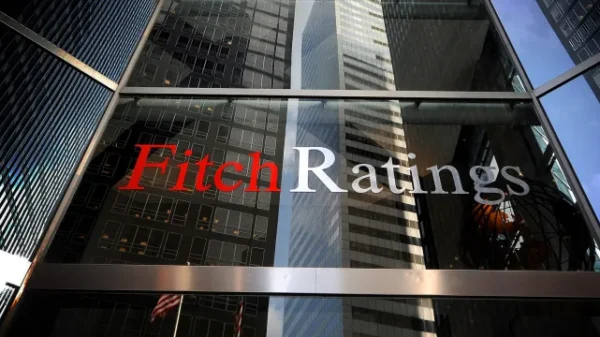In a significant ruling, the U.S. Supreme Court has given former President Donald Trump the green light to continue deporting alleged Venezuelan gang members using the 1798 Alien Enemies Act. This decision, which represents a crucial step in the Trump administration’s hardline stance on immigration, marks the latest chapter in a prolonged legal battle. The ruling, issued on Monday, enables the deportations to resume, albeit with specific limitations that ensure detainees retain the right to challenge their removal in court.
A 5-4 Ruling with Restrictions on Deportations
The Supreme Court’s decision came in a narrow 5-4 ruling, supported by the conservative majority of the court. The ruling effectively lifted a previous order by U.S. District Judge James Boasberg, which temporarily blocked the deportations under the Alien Enemies Act. This law, which has been used sparingly throughout American history, was most notably employed during wartime, such as to intern Japanese, Italian, and German immigrants during World War II.
Despite the court’s overall backing of the administration’s approach, the justices set forth certain restrictions. The majority emphasized that deportations under the Alien Enemies Act must allow for judicial review, meaning that those targeted for removal must be notified in a timely manner and given an opportunity to challenge their deportation before it occurs. This requirement ensures that detainees are afforded due process and are not subject to immediate removal without legal recourse.
The court’s majority opinion stated that detainees must be informed of their potential deportation and given the chance to seek habeas relief in the appropriate venue, typically the federal district where they are being held. This ensures that individuals are not unjustly removed without the chance to contest their deportation.
The Background of the Alien Enemies Act
The Alien Enemies Act of 1798 is an antiquated law originally designed to address national security threats during wartime. Under the act, the president has the authority to detain or deport individuals whose primary allegiance is to a foreign nation deemed an enemy of the U.S. during periods of war or armed conflict. However, its use has been rare in modern times, and the act’s invocation by Trump in this case has sparked considerable legal debate.
Trump’s administration turned to the Alien Enemies Act in March 2023, invoking it to expedite the deportation of alleged members of the Venezuelan gang, Tren de Aragua. This gang, believed to have ties to organized crime, is reportedly involved in illicit activities such as drug trafficking, human trafficking, and other criminal enterprises. The administration argued that the gang members posed a national security threat, justifying their removal under the Alien Enemies Act.
However, the legal challenge brought forward by the American Civil Liberties Union (ACLU) questioned whether the law could be used to deport individuals in the absence of a formal declaration of war or an invasion of U.S. territory. The plaintiffs—Venezuelan detainees—contended that the Trump administration’s actions were unconstitutional, as the law was never intended to target civilians in peacetime.
The Legal Challenge and the ACLU’s Involvement
The case against the Trump administration was spearheaded by the ACLU, which represents the Venezuelan detainees who are challenging their deportations. The plaintiffs argue that the Alien Enemies Act was meant to apply only in situations of declared war or invasion, and that its use in the absence of these circumstances represents an overreach of executive power.
Lee Gelernt, a lawyer for the ACLU, framed the court’s decision as a partial victory. While the Supreme Court allowed deportations to proceed under the Alien Enemies Act, it also reaffirmed that due process rights must be respected. Gelernt highlighted that the court’s ruling requires detainees to be informed of their status and be given the opportunity to seek legal recourse before being deported. He referred to this as a “huge victory” for the detainees’ right to challenge their removal.
Dissenting Opinions and Concerns Over Legal Precedents
While the majority of the court ruled in favor of the Trump administration’s position, the decision was not without significant dissent. Liberal Justice Sonia Sotomayor wrote the dissenting opinion, joined by Justices Elena Kagan and Ketanji Brown Jackson. The dissenting justices expressed concerns about the rushed nature of the majority’s decision and criticized the limited deliberation time the court had devoted to the case.
Sotomayor raised doubts about the majority’s interpretation of the Alien Enemies Act, questioning whether habeas corpus was the exclusive means to challenge deportations under the law. She warned that requiring detainees to bring their claims in various federal courts across the country could expose them to grave risks, including the possibility of secret transfers to detention facilities in far-off locations. She argued that such actions could have life-altering consequences for detainees, particularly if they were denied access to their lawyers or prevented from challenging their deportation in an appropriate legal forum.
The dissent also raised concerns about the fairness of the process, pointing out that detainees may face undue hardships due to the complexity of navigating the legal system in multiple jurisdictions. The justices suggested that the court should have taken more time to consider the broader implications of the case, including whether the Alien Enemies Act should apply in the absence of an actual war.
The Administration’s Reaction and Broader Implications
Despite the legal setbacks, Trump and his allies celebrated the Supreme Court’s decision as a victory for national security and border enforcement. In a social media post following the ruling, Trump hailed the court’s decision, asserting that it upheld the rule of law and reinforced the president’s authority to secure U.S. borders. He argued that his administration’s actions were necessary to protect American citizens and families from threats posed by criminal gangs and other foreign adversaries.
The ruling also has broader implications for U.S. immigration policy, particularly in terms of the president’s authority to invoke wartime laws to address issues of national security. While the decision does not resolve the ultimate legality of using the Alien Enemies Act for deportations in peacetime, it sets a precedent for how such cases will be handled going forward.
The Future of Deportation Under the Alien Enemies Act
This case represents a pivotal moment in the ongoing debate over the scope of executive power and its limits, particularly when it comes to immigration enforcement. While the Supreme Court has allowed the Trump administration to proceed with deportations under the Alien Enemies Act, the ruling does not provide a clear answer regarding the constitutionality of invoking the law in the absence of a declared war. The legal battle is far from over, and the case is likely to continue to unfold in lower courts.
For now, the immediate impact of the ruling is that the deportations of Venezuelan gang members will proceed, but with safeguards in place to ensure that detainees are given the opportunity to challenge their removal. It remains to be seen how the case will progress, and whether the Trump administration will expand its use of the Alien Enemies Act for other deportation efforts.
As the case moves forward, it will be closely watched by both immigration advocates and those who support the administration’s tough stance on immigration. The decision has once again highlighted the tension between executive authority and the rights of individuals, particularly those facing deportation in the context of a highly polarized political environment.
The U.S. Supreme Court’s decision to allow Donald Trump’s administration to pursue deportations under the 1798 Alien Enemies Act represents a significant development in U.S. immigration policy. While the ruling permits deportations to proceed, it also places important limits on how they can be carried out, ensuring that detainees are afforded due process and the right to challenge their removal. The case underscores the ongoing legal and political battles over the scope of executive power and the balance between national security and individual rights. As the legal process continues, the implications for immigration enforcement and the future use of wartime laws remain to be seen.










